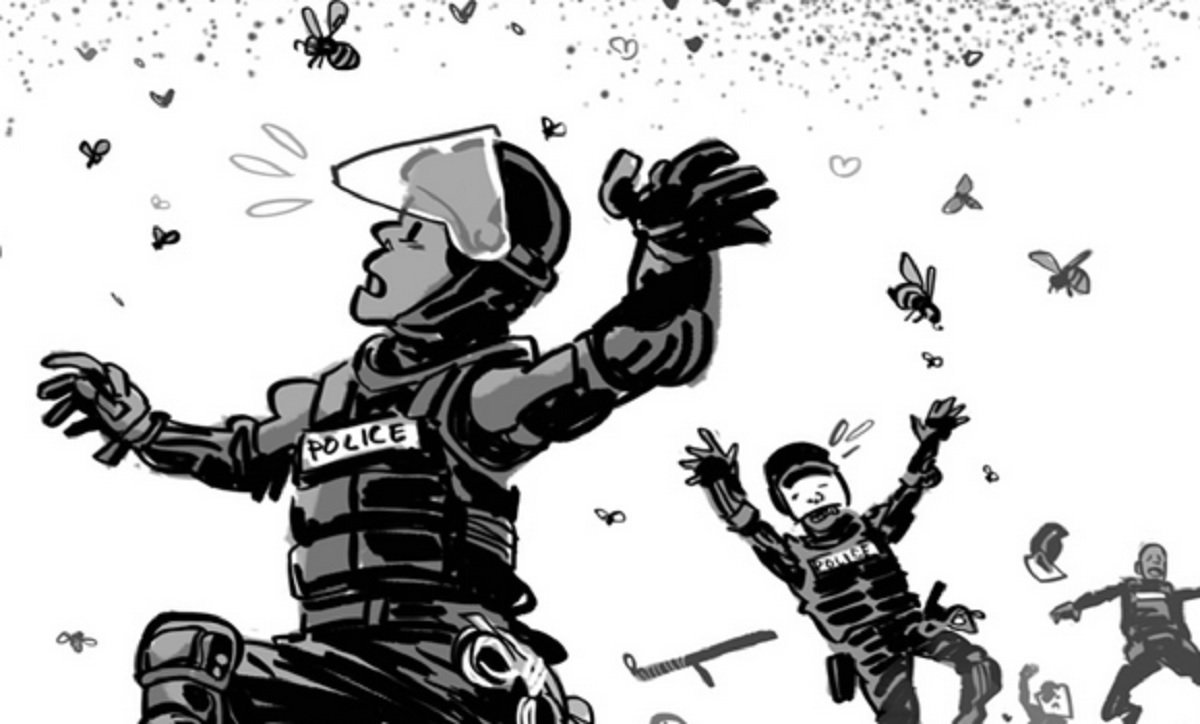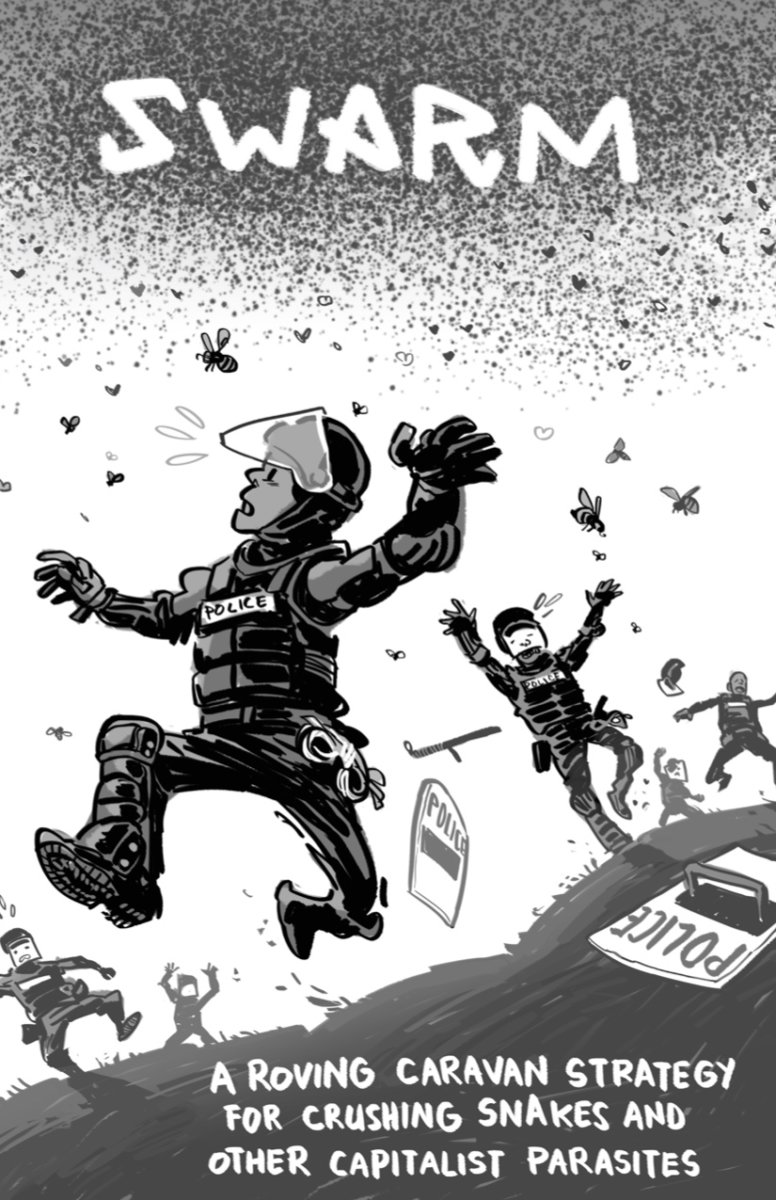Filed under: Analysis, Development, Indigenous, Land, Midwest, Publication

The following is an introduction to a publication detailing the strategy and tactics of Mississippi Stand, and argues that it’s mobile caravan model could be utilized against the Line 3 pipeline and other industrial capitalist infrastructure projects. To hear an interview with Mississippi Stand on the It’s Going Down podcast, go here.
Check Out the Publication Here: Read / Print
The Earth is gasping for air and so are all the living beings on her. The tightest knots around our throats are black snakes, the pipelines that pulse out of the oil fields in Alberta carrying climate-killing carbon across land and water. The fights against these pipelines embody a series of battles in the war for the future of life on this planet: The Tar Sands Blockade. Standing Rock. Unis’tot’en Camp. L’eau Est La Vie Camp. These are places we have made our stands against annihilation. But the battle goes beyond these camps. This is a fight for every one of our futures, and defeat is not an option.
Through hard fought struggle, we have forged and sharpened our tactics in order to adapt and win. This zine has been written and edited by a number of frontline veterans in the climate struggle, hoping to address new concepts around how we fight those who would drive us to extinction. Specifically, we wish to introduce the concept of swarming and the strategy of roving caravans, using the Mississippi Stand campaign as a case study.
Swarm tactics are the use of autonomously acting cells on the battlefield, acting in coordination without a centralized or hierarchical command structure. This way of carrying out actions mimics swarms in nature, such as bees or piranhas. Humans have used swarm tactics for thousands of years, especially for guerrilla and insurgent forces facing better-funded occupying forces.
The mobile caravan tactic takes the analysis of the pipeline fight as an asymmetric, “guerrilla” struggle against an occupying force to its logical next step. Rather than relying solely on stationary camps set up to block a pipeline, the mobile caravan approach relies on disrupting production up and down the pipeline, stretching police and security forces thin and maximizing disruption.
We aim to bring these ideas into the consciousness of the broader movement for discussion, debate, and subsequent application in the field. This zine has been written in the context of the brewing Line 3 struggle across Ojibwe and Dakota lands and the watersheds of northern Minnesota. However, we believe that the lessons we explore here and the experiences we gain through struggle will find relevance well beyond this particular pipeline fight. We believe that if adopted, these tactics can significantly increase the effectiveness of our struggles against fossil fuel infrastructure.






